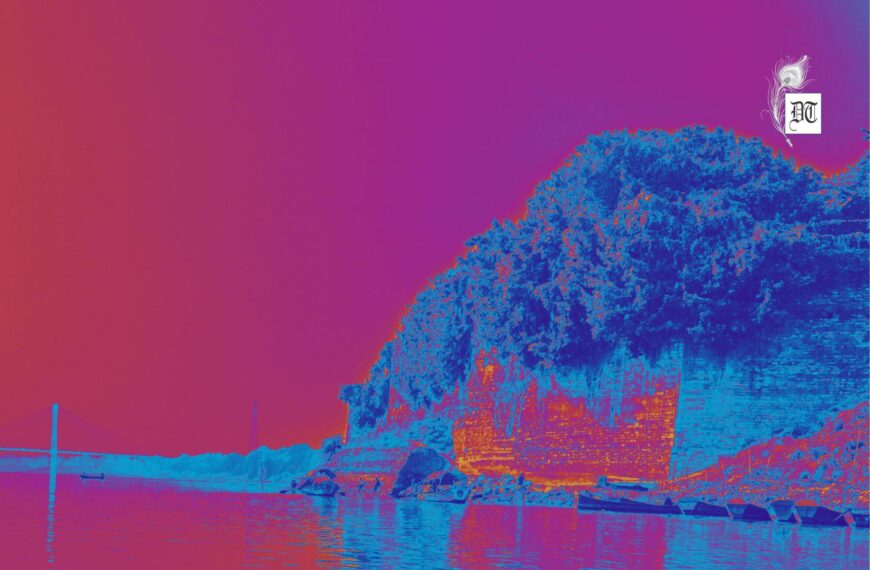The BSP czarina, Mayawati, has evidently decided that teaming up with the former Prime Minister HD Deve Gowda’s party in Karnataka is her best option. A report, for Different Truths.
Mayawati’s alliance with the Janata Dal (Secular) in Karnataka for the forthcoming assembly election is possibly her last throw of the dice in an effort to retain her political relevance.
Realising that she is becoming a back number in view of the rise of young Dalit leaders like Jignesh Mewani and Chandrashekhar Azad “Ravan”, the BSP czarina has evidently decided that teaming up with the former Prime Minister HD Deve Gowda’s party in Karnataka is her best option.
Considering, however, that the main battle is expected to be between the ruling Congress and the BJP, the Janata Dal (Secular)-BSP alliance is likely to be seen as a get-together of losers since the electoral records of the two partners in the last assembly election are nothing much to write home about.
For instance, the Janata Dal (Secular) won 40 seats in the 224-member legislature with a 20 percent vote share in 2013 while the BSP won none with less than one percent votes. Few can claim, therefore, that they constitute a formidable combination. As a result, they are likely to play the role of spoilers where both the Congress and the BJP are concerned.
In fact, one opinion poll has said that the calculation of the Janata Dal (Secular) is to play the kingmaker in case neither of the two main contenders gets a majority. It is even possible that the Janata Dal (Secular) will tilt towards the highest bidder in the sharing of power since it has had alliances with both the Congress and the BJP in the past.
It may be stated in this context that notwithstanding the presence of the word, secular, in its name, the Janata Dal (Secular) has had no compunctions about teaming up with the BJP. In this respect, it shares the lack of inhibitions about the BJP like two other splinter groups of the original Janata Party – the Janata Dal (United) of Bihar and the Biju Janata Dal of Odisha.
The BSP, too, has been a partner of the BJP in Uttar Pradesh. It is possible, therefore, that the BJP will bank on the Janata Dal (Secular)-BSP combine coming to its rescue if it falls short of a majority. The BJP’s confidence has been boosted, of course, by its performance in the last general election when it won 17 of the 28 Lok Sabha seats in Karnataka. But there have been signs since then that the Narendra Modi magic of 2014 is fading.
The Congress, on the other hand, has consistently maintained its 30-plus per cent vote share, securing 35.2 per cent in 2004, 34.7 percent in 2008 and 36.5 percent in 2013. The BJP’s percentages, however, have tended to fluctuate. It got 28.3 percent in 2004, 33.8 percent in 2008 and 19.9 percent in 2013.
To what extent Mayawati will gain in such conditions is unclear. Since the chances of a spectacular increase in the BSP’s seats or vote share are unlikely, the BSP’s virtually inconsequential presence in the Karnataka elections will be seen to have only helped the BJP – a perception which is at variance with the current anti-BJP trends in Dalit politics as the stances of Jignesh Mewani and Chandrashekhar Azad “Ravan” show.
While the Janata Dal (Secular)’s earlier dalliances with the BJP – as also with the Congress – were patently examples of opportunism, Mayawati’s partnership with the BJP in U.P. was on the rebound from the intense antipathy towards the Samajwadi Party (the BSP’s ally between 1993 and 1995) following the infamous state guest house episode in Lucknow in 1995 when Mayawati feared for her life when the Samajwadi Party supporters attacked the building.
But much has changed since then with the Samajwadi Party’s Akhilesh Yadav even talking about an alliance with Mayawati to take on the BJP in U.P. The former chief minister obviously sees in the alliance the only way to stop the saffron juggernaut. But Mayawati has shown little interest in such an endeavour. She is also disinclined to align with the Congress as is Akhilesh.
It is possible that she hasn’t quite realised that she is no longer the force which she was when her party secured an absolute majority in the U.P. assembly in 2007. Although she is 61, a relatively young age for an Indian politician, she is already regarded as a veteran whose time has come and gone. New players have entered the scene whether it is Akhilesh Yadav or Rahul Gandhi, not to mention the two young Dalit firebrands.
But Mayawati still seems to think that she can set her own terms. As is evident from her foray into Karnataka where the BSP does not have much of a base, she is intent on ploughing a line of partnership with other regional players even if their importance at the national level is minimal.
But ventures of this nature are unlikely to boost her political position. Indeed, a setback in Karnataka will undermine her image even in U.P. where she remains a major player with a vote share of 22.2 per cent, more than the SP’s 21.8.
Amulya Ganguli
©IPA Service
Photo from the Internet
#Karnataka #Mayawati #PoliticalPosition #JanataDal #PrimeMinister #IPA #DifferenTruths





 By
By
 By
By

 By
By